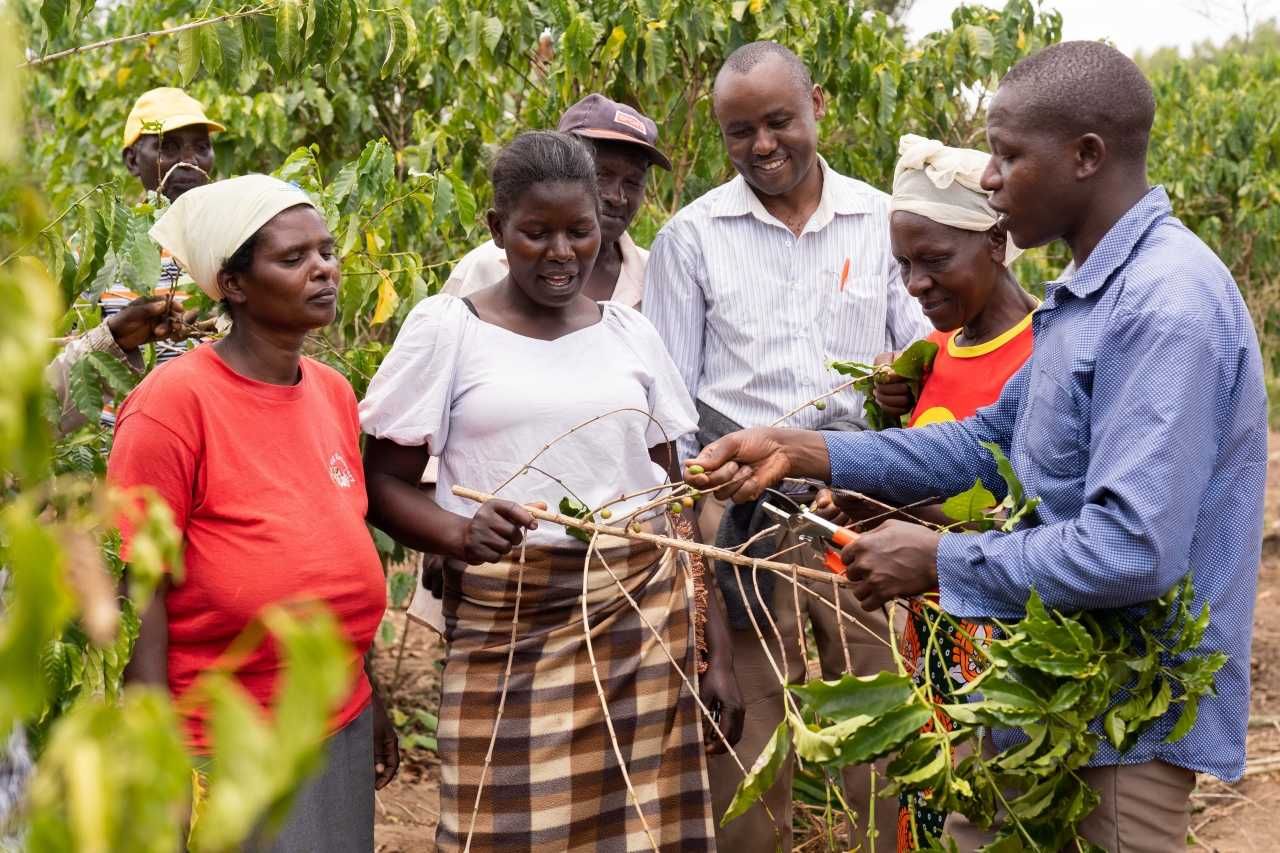Share your coffee stories with us by writing to info@comunicaffe.com.
WASHINGTON, US – Fairtrade America recognizes the impact of climate change on farming families worldwide, and timed with June 5, World Environment Day, will now offer resources to support all coffee farmers in mitigating climate-related challenges. Farmers who grow everyday staples such as coffee, cocoa and bananas are facing decreasing harvests due to extreme weather and challenging conditions brought about by climate change.
Having less viable crops to sell results in income loss, making it very difficult for farmers to adapt their farming practices or invest in new technologies. The Fairtrade Climate Academy was created to increase the resilience of coffee farmers through extensive training and resources for adaptation and mitigation. Fairtrade is making available key lessons and concrete tools from the program to all coffee farmers globally.
By 2050, up to half of the world’s land currently used to farm coffee may not be viable. When it comes to coffee, which is often sold at low prices, farmers name climate change issues — including increased pests, faster spreading diseases and unpredictable weather — as the biggest problem they face in earning a livable income. Irregular rainfall, periods of severe drought and rising temperatures lead to extremely uncertain yields for small farms. In Kenya, coffee bushes yielded on average 40% less berries in 2019 than in 2017 as a direct result of climate-related challenges.
The Fairtrade Climate Academy brings coffee farmers together to share skills and experiences that help prepare them for future climate-related challenges. More than 8,500 Kenyan coffee farmers collaborated with Fairtrade on this extensive program to make their operations more resilient. For example, farmers learned how to care for their soil and how to grow more drought-resistant crops. The program is designed to be self-sustaining, with farmers who have been trained continuing to educate others about the best farming methods in the changing climate.
“We have greatly benefited from the Fairtrade Climate Academy training. We can’t rely on the standard rainy seasons anymore. Fortunately, we are now better prepared to handle these circumstances,” said Judith Roto, a Fairtrade coffee farmer from Kibukwo in western Kenya.
On an even more basic level, extreme weather impacts farmers’ basic human rights to clean water, sanitation, food and more. The Fairtrade Climate Academy enabled farmers to use cow manure to produce energy, decreasing the need to cut down trees for firewood, as well as problematic smoke from fires.
Fairtrade compiled their Climate Academy’s key lessons and concrete tools as an open resource for all coffee farmers. The content is available via YouTube videos, translated into five languages to ensure widespread access throughout Fairtrade’s network of more than 750,000 producers and beyond to farmers outside the Fairtrade system. Fairtrade will also load the content onto portable projectors to reach producers in remote regions.
“Sharing knowledge and financial resources are critical to farmers being able to maintain and improve their livelihoods,” said Peg Willingham, Fairtrade America’s Executive Director. “To produce sustainable goods, we need to start by providing the people who grow them with tools, practices, and resources to become more resilient. Fairtrade is a valuable partner for ethical companies looking to source sustainably produced raw ingredients and materials.”
With a quarter of its rigorous standards focused on the environment, Fairtrade takes a holistic approach to collaborating with farmers. This includes minimizing environmental impact by restricting use of harmful chemicals, banning GMO seeds, preserving protected forests, and encouraging organic farming when possible. Fairtrade’s unique pricing model puts more money in the hands of farmers and farming communities so that they have the resources they need to implement solutions to environmental challenges, and connects farmers to share best practices in mitigating the impacts of climate change.
To learn more about the Fairtrade Climate Academy, visit: https://www.fairtradeamerica.org/choose-the-planet/climate-academy/
Fairtrade International is partnering with the Earth Institute’s International Research Institute for Climate and Society (IRI) to present a virtual panel that will explore the nexus of climate change and social justice in the world’s coffee industry and what consumers, industry and legislators can do to effect change. The expert panel will delve into the economic and human rights impact of climate change on coffee producing regions, and how Fairtrade is adapting and collaborating with producers to address these issues. The “Empty Cups: Climate Change and the Future of Coffee” virtual event will take place on June 25, 2021 at 8:00am EST. To register, please visit the EventBrite page.















